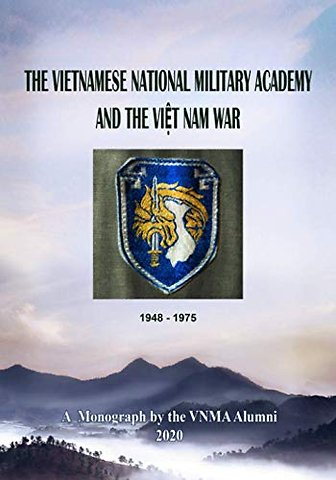The Vietnamese National Military Academy and the Việt Nam War
Paperback Engels 2020 9798578518690Samenvatting
This monograph outlines the history of the Vietnamese National Military Academy (VNMA) from 1948 to 1975. The new institution trained military cadres according to the standards of advanced armies in the world. The application of the 4-year program became supple because of the needs and conditions of the battlegrounds. The VNMA went through a challenging journey to keep up with the world-famous military schools like the U.S. Military Academy (1802); Ecole Spéciale Militaire de Saint-Cyr (1802), and the Royal Military Academy, Sandhurst (1812). Due to the unique circumstances of South Vietnam, the tasks of the VNMA were somewhat different and more complex than the other schools named above.
That is, the VNMA must produce the military cadres to pursuing both national defense and nation-building endeavors. The history of VNMA was closely linked to the historical struggle of the Republic of Vietnam. After April 30, 1975, military researchers continued to investigate relevant issues and incidents to give answers to the ultimate question of whether the final collapse was inevitable or by taking different strategies that could make North Vietnam abandon its intention to invade South Vietnam?
They are:
1. After the signing of the 1954 Peace Accord Treaty, the North Vietnamese still retained the war machine as in the first Indochina war. Since 1959, they had already explored the infiltration route to the South across Laos and Cambodia, known as the Hồ Chí Minh trail.
2. The Domino Theory, initiated by President Eisenhower in 1954 and followed through by both presidents Kennedy and Johnson, no longer had any geopolitical value under President Nixon.
3. The U.S. and South Vietnamese planners failed to interpret the strategy named the "General Offensive and General Uprising" developed by North Vietnamese leader Lê Duẩn since 1964.
4. The Tết Offensive of 1968, an utter military defeat for the Communist forces, turned out to be a psychological victory to them and a turning point of the Vietnam war.
5. The failure of Operation Lam Sơn 719 by the South Vietnamese forces in February 1971 in southern Laos.
6. The U.S. military forces, when landed in South Vietnam in 1965, did not have any clear objectives. The strategy of "Search and Destroy" - measured by body-count and kill-ratio - initiated by General Westmoreland in 1965 was not a strategy per se, but because there were no other strategies.
7. The "Vietnamization Plan" was, in fact, a clumsy label. The U.S. should have fully equipped the ARVN much earlier for them to fight their war.
8. The main drawback of the Paris Agreement in 1973 was that it allowed North Vietnamese troops to remain in the South after a ceasefire.
9. Throughout the war, the U.S. and Vietnamese governments failed to convince the international public opinion and especially in the United States, why Americans should have fought in Vietnam, and why the people of South Vietnam fought against the Communists?
10. The three closest reasons which led to the final collapse of South Vietnam were (1) the imperfect Agreement on Ending the War of 1973; (2) the untimely withdrawal and retrenchment of the South Vietnamese Army from the Military Regions 1 and 2; and (3) the fact that President Ford was not able to convince the U.S. Congress to aid South Vietnam to continue fighting.
This book could be of good use by three primary readers: (1) the young Vietnamese generations who are not fluent in reading Vietnamese; (2) the Vietnamese-American military cadres in the U.S. Army who want to know more about the history of the Republic of Vietnam Armed Forces; and (3) scholars specializing in military history research around the world.
Specificaties
Lezersrecensies
Rubrieken
- advisering
- algemeen management
- coaching en trainen
- communicatie en media
- economie
- financieel management
- inkoop en logistiek
- internet en social media
- it-management / ict
- juridisch
- leiderschap
- marketing
- mens en maatschappij
- non-profit
- ondernemen
- organisatiekunde
- personal finance
- personeelsmanagement
- persoonlijke effectiviteit
- projectmanagement
- psychologie
- reclame en verkoop
- strategisch management
- verandermanagement
- werk en loopbaan

